Streamlined Beauty: Why You Don’t Need Eye Cream
5 years ago by
I don’t know about you but 2020 has got me Marie Kondo-ing my whole life. Something about spending months indoors looking at the same spaces, clothing, and things in general has made me really consider what I need – and what I need less of. After I’d done the requisite closet clean and yearly declutter of random spices from the pantry, I turned my focus to my sacred space: the beauty cupboard. I have happily, and unashamedly hoarded beauty things for years, but with my 2020 glasses on there was something about it that superfluous. Indulgent even. How much did I really need a toner? Was my eye cream really doing something that my moisturizer couldn’t do? What would my life (and face) be like without that essence?
Was I the only one feeling like this? To be honest I felt just the tiniest twinge of embarrassment that it’d taken me this long to look at my beauty shelf, and to admit that maybe, just maybe I wasn’t immune to the lure of a good marketing campaign, despite over a decade in the beauty industry.
This existential beauty crisis led me to a couple of product epiphanies: one; I don’t really believe in eye creams and two; I had a newfound respect for hand cream (which I had previously stuck in the “nice but superfluous” pile) but after six months of sanitizer abuse became an MVP. And so, I went seeking more revelations, by way of some brilliant experts who know their way around a good product – and are highly trained in dodging marketing hyperbole. Here are the products they say we could all do without:
Dr. Cristina Psomadakis (aka: @Dr.SomaSkin), London-based dermatologist
“Toners. Historically toners (also called skin tonics) contained a high percentage of alcohol and left users with a cool, tightened skin effect, which was thought to be beneficial. Clinique really popularized the “3-step cleanse, tone, moisturize” routine in the 1960s. These days, toners have evolved and most no longer have a high alcohol content, but they don’t really serve a purpose that can’t be delivered more effectively by a different formula. For example, some toners are hydrating, but there are serums and moisturizers that do that really well. By all means, if you love it in your routine, proceed, but don’t feel any pressure to incorporate this into your routine.”
Margo Marrone, pharmacist, homeopath and Co-Founder, The Organic Pharmacy
“My skincare non-negotiables are cleanser, exfoliation, mask, serum and moisturizer. I’d say if I had to lose something it would be an eye cream or a primer. A moisturizer (with a light hand) can double as an eye cream. The rest really depends on the ingredients – leave on products are generally formulated differently with different percentages so some times can irritate the skin as percentages are higher. There might be some trial and error, but the right product could cover more than one base.”
Celebrity makeup artist, Lisa Aharon.
“I’m always so conflicted when it comes to minimizing my beauty routine and advising others to do the same. The fact of the matter is, I love a no fuss regimen but I’m obsessed with the products themselves! That being said, when it comes to makeup it’s often blush and lipstick that I find to be interchangeable. If I’m aiming to pack a minimal makeup bag for a weekend away, I’ll grab one or the other – not both. A dab of lipstick on the cheek blended into your moisturizer or foundation works perfectly for a little flush. And, similarly a cream blush swiped on the lips can give just enough life to your look.”
Zoë Foster Blake, Founder, Go-To
“I don’t believe in eye creams. I think they are very small, very expensive pots of moisturizer. And things like crow’s feet and dark circles are genetic. Instead, invest in eye concentrates, and serums, and products with retinol. They will do something. Also, SPF! And wear sunglasses!”
Prudvi Mohan Kaka, Chief Scientific Officer, DECIEM.
“In my opinion, a product would not be superfluous if it is intended to address a particular skin concern. There isn’t a single selection of types of products that can be standardized across a population, as texture preferences, skin concerns, and user type are subjective. This is why we offer a variety of products – even across one ingredient like vitamin C. Our vitamin C products cater to a broader spectrum of user preferences when it comes to sensorial profiles of the different products, the type of Vitamin C (derivatives or direct), different concentrations of Vitamin C, and user experience (beginners and experienced) to take into account variability in skin tolerance to Vitamin C. This wide variety of products offers a user the choice to select the best product that meets the needs of their skin concern.”
Kevin Murphy, Founder and Creative Director, KEVIN.MURPHY
“I know I’m all about skincare for your hair, but there is one step in skincare I don’t think is necessary for hair care, and that’s a primer. Primers usually help to prepare the surface of the skin to receive and hold makeup, ensuring it stays smooth and lasts longer. What works just as well in hair is a leave-in treatment or leave-in conditioner because they both set a really good foundation for the hair and create an even surface for any additional product you want to layer on top of that.”
Hannah English, scientist, pharmaceutical researcher and beauty creator.
“Sleeping masks and moisturizing masks are pretty unnecessary – if you have a good moisturizer, you don’t need separate products on top. They all utilize the same ingredient categories; humectants to grab and trap water, emollients to smooth skin, and occlusives to seal it all in. The only differences between a moisturizer and a moisturizing mask are a) the name, and b) the way they feel on skin – a mask might not be as compatible with other products as it’s designed to be used alone. Save your time and money and just use one! That said, for some it’s about a treat day and the ritual, and I’m absolutely here for that.”
Dr. Michele Squire, PhD-qualified scientist, science educator, former Registered Nurse and founder of Qr8 and Qr8 MediSkin.
“There are so many cosmetic products that fit this criteria! However, the number one superfluous product for me is probably quite controversial: over the counter (‘cosmetic’) retinol serum or cream. Yes, retinol (which also includes its derivatives such as retinaldehyde, retinyl palmitate, retinyl retinoate and others) is a form of vitamin A like its big sister tretinoin (available in most countries prescription-only). Tretinoin has decades of high-level scientific research supporting its amazing effects in ameliorating skin concerns like lines and wrinkles, and acne. Unlike tretinoin, which already exists in its bioavailable form (retinoic acid) retinol products must first be converted to this active form by skin enzymes. As a result, the retinols are at least 20 times less potent than retinoic acid* (on the plus side, this means that there is little chance of irritation with retinols, but this can depend on other ingredients in the formulation).
So for anyone who is serious about treating ageing-related concerns, acne and pigmentation, I err on the side of favoring ingredients with evidence of their effectiveness (rather than opinion).”
*Of the hundreds of scientific studies of retinols, only nine properly conducted, independent clinical trials investigating retinol exist in the scientific literature. These show that the science supporting retinols in anything other than very mild skin wrinkling (with zero evidence as a treatment for acne or pigmentation) is virtually non-existent.
If you want more direct beauty tips like these, sign up for Sarah Tarca’s newsletter, Gloss Etc, here!

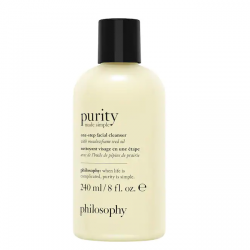
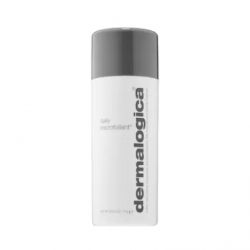
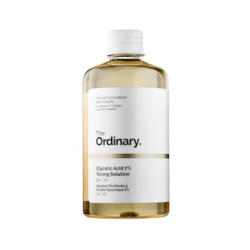
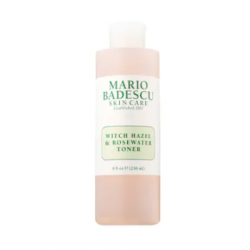
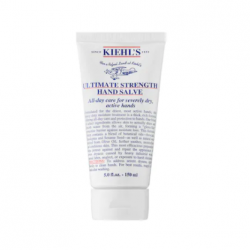
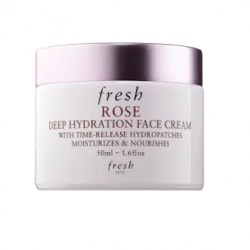


























































Wow – This has made me think … eye creams and retinols. May be I can streamline these two out…
I love my hyaluronic acid and dry oil (and sunscreen!) for day – but my night has been retinols, eye cream and moisturiser for a while. Maybe I will only try the moisturiser.
Finally!
I have used regular moisturizer for eye cream in a pinch and have wondered why I don’t use it all the time. I will finish the tubes I have and use only tace moisturizer after that! I’ve taken to the French pharmacy brands available here in drugstores and they are quite nice and effective for their purpose–and apparently French women use them instead of the more expensive stuff. If French women do this, it is good enough pour moi.
And, I keep the bottles of toner I’ve bought over the years that I don’t use (even close) on a regular basis (because who really has time to double cleanse, tone and moisturize, TWICE a day?) to substitute for washing my face when all I can do is brush and floss teeth (no one ever talks about the beauty implications of not doing that every night) and apply the real Retin-A before going to bed and maybe sleep. Swiping with toner (and don’t get me going on the miceller water scam, which does not leave the skin feeling clean) gets the daily dirt off–you can even dilute it by wetting the cotton batten first and then adding the toner–and is good substitute for washing with soap when you just can’t do it. Don’t we put moisturizer on after washing (or what is called “cleansing”) anyway?
One day a couple of years ago, after paying large sums of money on non-prescription retinols and reading the copy–highest level available without a prescription–I wondered why I hadn’t asked my dermatologist about the real stuff, which I knew is the only thing proven to work. I did ask and started off with the lowest concentration, which not only worked (I could see the results and know that was the best available result short of other medical interventions) but also was not that irritating (I have what is considered “sensitive” skin due to actual skin allergies andhereditary rosacea, which I am treating medically as well). There are ways to build up a tolerance (like we all do for the off-the-shelf products) and it is cost-effective. It is pure with no other additives that can complicate any reaction. The prescription cost is not more than most of what is sold on the shelves and some people may get reimbursed for it by insurance.
When you get to a certain age, you realize that what you thought was a problem with your skin is something you would love to have again. All the money I spent on products when I truly had no problems because I had bought into the companies’ and fashion magazines’ rhetoric (and the magazines and, often blogs, are basically shilling for the companies) was completely wasted.
And, let’s hear it for Ivory soap–it has truly gotten a bad rap over the years, first, from the derms who suggested using Dove as a substitute (which I always found to be gross as a product and on the face) and then from the beauty companies, sensing a business opportunity, that piled on after that. It really cleans, and if you rinse with water well (10-20 splashes), the soap residue is off. And it is cheap. I’ve used the Clinique bars and the Erno Lazlo bars (as part of their 3-5 product system), and found, during lock-down as a personal lark one night, that Ivory does the trick at a fraction of the cost. When winter comes and soap may contribute to the drying situation, consider using old-fashioned Albolene to take the make-up off, followed by a toner (that is a good reason to keep some around in the medicine chest).
So we should take ourselves to a regular dermatologist (one who doesn’t sell his/her products on the side) and get prescriptions for the real medical issues and stop buying all this extraneous and ineffective shit with nice packaging, misleading messaging and scents and textures that seduce us to buying things we don’t really need (and con us into buying the whole system so the products work in some kind of synergy). Go back to basics–soap and water, normal moisturizer when and where needed–get actual drugs for real problems, do the best for your skin (face and body) without becoming obsessive, and worry about other things, of which there are plenty, and apply the energy previously applied to skincare to those.
“Good” skin is mostly genetic and you can tilt the odds in your favor with good practices (which includes sunscreen when out in the actual sun). Everyone who gets to be old ends up with skin that is old, which nothing can prevent and can only mitigate with proven medical treatments.
Enough said–and thanks so much for this post!
I just can’t believe there are so many cosmetics. It’s a huge amount! And about all including chemicals. But be aware, natural doesn’t mean it is always good for the skin/body/environment. Hay fever is natural too ;-P. Sadly my skin is ruined by all the cosmetics. I only used allergy free brands and even then. Got the itching, stinging, tingling, burning, hives and eczema to mention a few. And my eyes still suffer thanks to the cosmetics. The skin of my eyelids even torned open to wounds because of (expensive) cosmetics. When using (allergy free) body lotion I get a rush, feeling so hot and go sweating. Is it the hormones in cosmetics they are talking about lately? It even affects the immune system. Creams make your (dry) skin dryer is also a theory. And then, how about the micro plastics?! I’m really worried about our dear Mother Earth. The only ones benefit from the cosmetics are the producers…money. Ofcourse there are good ones too…I hope…but which ones? I got scared to try any of them.
I’m not only minimizing my cosmetics for years now but everything. Okay, not the shoes, I keep them but don’t want to buy many more ;-D @fabiduister
Fabi,
Seems that finding an allergist/dermatologist to perform an extensive skin allergy test would be helpful.
Some people have skin allergies to specific chemicals in products and the only way to know what they are is through the skin test.
Once you know what to avoid, you can use products without them. Without knowing what you are allergic to, you can inadvertently use products that trigger these symptoms.
I know this from personal experience. Once I knew what to avoid, my skin stopped reacting and healed back to normal.
Good luck!